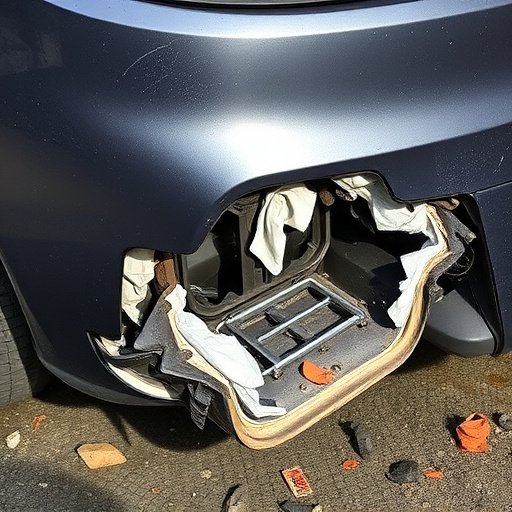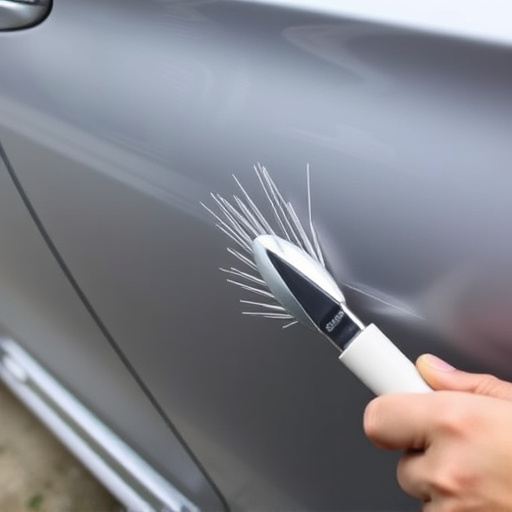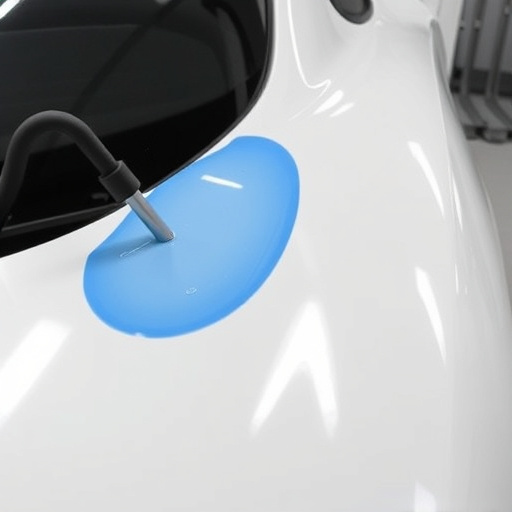In hassle-free collision repair, empathy is key to building trust with stressed customers. By actively listening and demonstrating understanding, auto body repair experts create an environment of openness and transparency, addressing clients' concerns and offering personalized service. This fosters positive communication, enhances customer satisfaction, and encourages referrals, ultimately strengthening the business's reputation for excellence in the competitive vehicle repair market.
In the realm of hassle-free collision repair, empathy isn’t just a nicety—it’s a game-changer. When customers walk into a workshop after a stressful accident, understanding their perspective can transform an already challenging experience. This article delves into the power of empathy in collision repair services, exploring how it builds trust and rapport, enhances service quality, and ultimately, creates a more satisfying customer journey. By implementing practical strategies, workshops can ensure every interaction reflects empathy, setting new standards for hassle-free experiences.
- Understanding the Customer's Perspective: Unveiling the Impact of Empathy
- Building Trust and Rapport: The Role of Empathy in Workshop Interactions
- Enhancing Service Quality: Practical Strategies to Implement Empathy in Collision Repair
Understanding the Customer's Perspective: Unveiling the Impact of Empathy

In the realm of hassle-free collision repair, understanding the customer’s perspective is paramount. When a client brings their vehicle in for car collision repair or car restoration, they are often already dealing with stress, inconvenience, and uncertainty about their beloved car’s condition. Empathy, the ability to step into someone else’s shoes, allows collision repair professionals to recognize and address these concerns effectively. By acknowledging the customer’s perspective, technicians can provide a more personalized and comforting experience.
This human connection goes beyond mere service; it fosters trust and ensures customers feel heard. When approached with empathy, clients are more likely to view the paintless dent repair process as less intimidating and more transparent. Such an approach can significantly enhance customer satisfaction, encouraging positive word-of-mouth referrals, and solidifying the business’s reputation for exceptional service.
Building Trust and Rapport: The Role of Empathy in Workshop Interactions

In the realm of hassle-free collision repair services, empathy plays a pivotal role in building trust and rapport with customers. When clients bring their vehicles into a workshop for repairs, they often face stress and anxiety due to unforeseen damages. An empathetic approach from auto body repair experts can significantly ease these concerns. By actively listening to customers’ worries and demonstrating understanding, technicians foster an environment of openness and transparency, making clients feel valued and respected.
This rapport is crucial in navigating the complex process of fender repair, auto glass replacement, or auto body restoration. Customers who trust their repairers are more likely to share relevant details about their vehicles’ history and specific needs. This open communication ensures that every aspect of the vehicle is considered, leading to higher-quality outcomes. Empathy also enables technicians to offer personalized solutions, making customers feel part of a community rather than just another service request, ultimately enhancing customer satisfaction in hassle-free collision repair services.
Enhancing Service Quality: Practical Strategies to Implement Empathy in Collision Repair

In the realm of hassle-free collision repair, empathy serves as a game-changer, fostering a transformative experience for both customers and repair technicians. Going beyond mere satisfaction, implementing empathy in automotive repair and vehicle body repair processes creates an environment that prioritizes understanding and care. This approach ensures that clients feel valued and respected, addressing not just the physical damage but also their emotional investment in their vehicles.
Practical strategies to incorporate empathy into collision repair include training staff to actively listen to customers’ concerns, using empathetic language, and offering personalized solutions. By creating a supportive atmosphere, repair facilities can enhance service quality, build trust, and foster long-term customer relationships. This not only improves customer retention but also encourages positive word-of-mouth, ultimately elevating the reputation of the collision repair business in the competitive vehicle repair market.
Empathy is a powerful tool for transforming the way collision repair services are delivered, creating a more positive and hassle-free collision repair experience. By understanding customer perspectives, building trust, and implementing practical strategies, repair shops can foster a sense of care and consideration that goes beyond the mechanics of the work. This approach not only improves customer satisfaction but also fosters long-term loyalty, setting a new standard for excellence in the industry.














